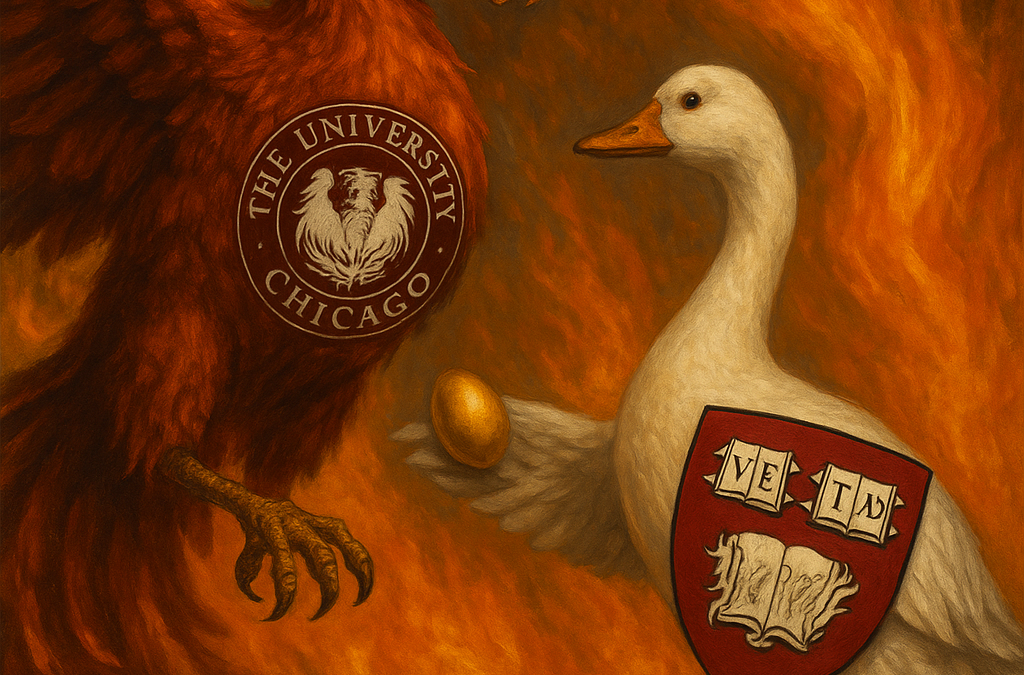Can you write a Master’s thesis with ChatGPT?
Since the very dawn of time, students have sought new and creative ways to pass their exams that uh, do not include just studying.
People have hidden scraps of paper inside their pens, written down answers on their forearms, transcribed ancient Chinese texts onto underwear…

Even now, there is a disturbing number of articles on WikiHow about cheating, namely 10 Ways To Cheat on a Test Using Body Parts and even 3 Ways to Cheat on a Test Using Pens or Pencils… (WikiHow, why do you have so many of these????)
…And the list goes on!
Now, it’s no secret that it’s very possible to cheat with ChatGPT and that this has thrown educators worldwide for a loop, but then I received a rather funny question earlier on the Artificial Intelligence Megathread that I started on Lowyat.net.

Well.
Could you potentially write a Masters thesis with ChatGPT?
It so happened that someone on the ChatGPT Malaysia Facebook group had asked about the same thing, so I thought ok, let’s make it happen.
Anyway, I was curious about whether it was actually possible, so I decided to give it a go.
Here’s what I asked:

Okay, so at the very least the software proposed a bunch of topics that seemed kind of plausible and interesting.
Anyway, since I’m involved in the education industry and AI – based learning is very interesting to me, I decided to ask ChatGPT to follow up on #7, as follows:

Okay, wow! I had sources too! This was getting interesting! But then…

I looked at this, and I was captivated: Was I on my way to get a Master’s degree for this man?
No, wait. Wasn’t this even better? Wasn’t this thing essentially describing the process of creating a personalized new education technology company for me???
I set out in earnest, yearning to go where no man had ever gone before!

Okay, seemed great so far! I ran out of words, though, so I asked ChatGPT to continue:

Okay, uh…
Do you see what I’m seeing here?
Rather than actually writing the thesis, ChatGPT was malingering — it was casually not doing what it was told to do, and presenting me with some nonsense summary!
That won’t do! You think just because you’re an AI assistant you get to be lazy?!
I asked it to continue, and provide results in detail.

For about five, this seemed really really plausible, so I was happy again…
For about five minutes, before my skepticism began again.

…So I checked the references, only to realize that they mostly couldn’t be found anywhere.
Okay, I was thinking to myself.
This is a wonderful software, I declared, trying to beat back the cognitive dissonance.
Surely the third page will be a little bit better? So I thought.

At this point, I realized – ChatGPT had failed.


The two methodology sections contradicted themselves, and there wasn’t a possibility of reconciliation unless I proceeded to prompt chatGPT with the specific information that it actually needed, which I decided not to because the rewarded yielded by that effort would actually be better spent writing the thesis if I actually had a clear idea of how to do so.
So, how do we answer our research question?
With a solid no.
- As you can see, there’s a word limit for responses, which means that you will have to re-prompt ChatGPT, which is likely going to lead it to drift from the original prompt.
- ChatGPT’s memory for prior responses is about 4000 tokens (words) and it will not completely remember everything that you told it before unless say, you intelligently summarize.
- There is no guarantee that the logic or factuality of your piece will be valid or that even any of the sources that you cite will be accessible or even relevant to what you are writing about, as you see from the questionable sources.
Sorry to those of you out there hoping that ChatGPT was going to help you get your Master’s degree, but it’s not gonna happen right now.
Even if you can though, should you? I guess that’s up to each person to decide, but what I would say is that submitting something AI generated for a degree means that you didn’t get the degree — the AI did and got certified and you did not.
Let me not moralize this or romanticize education, but approach the matter in a logical way — when this starts to happen on a large scale, if it does happen, I can imagine that companies or other institutions that used to take these degrees seriously will simply no longer take them seriously, thereby causing degrees as a whole to become about as worthless as MOOCS among prominent companies (i.e. companies that actually generate large amounts of business and have a vested interest in hiring actually talented people) and leading to what we already see, to a degree, in institutions such as tech companies and start-ups… Whereby many of these companies don’t pay the most attention to the particular degree that you received, but rather whether you are capable of demonstrating the specific skills that they are looking for and communicating your perspective in the course of an interview in which there is no opportunity to make use of AI software.
How will artificial intelligence change not just education, but also the job market at large?
We’ll be finding out, and we’re going to be in for a wild, wild ride!
I’ll have lots more to say about this in the days ahead, so if you would like to read about the intersections between AI, writing, and education, do consider dropping me a follow and I’ll see you in my next pieces!
— V


